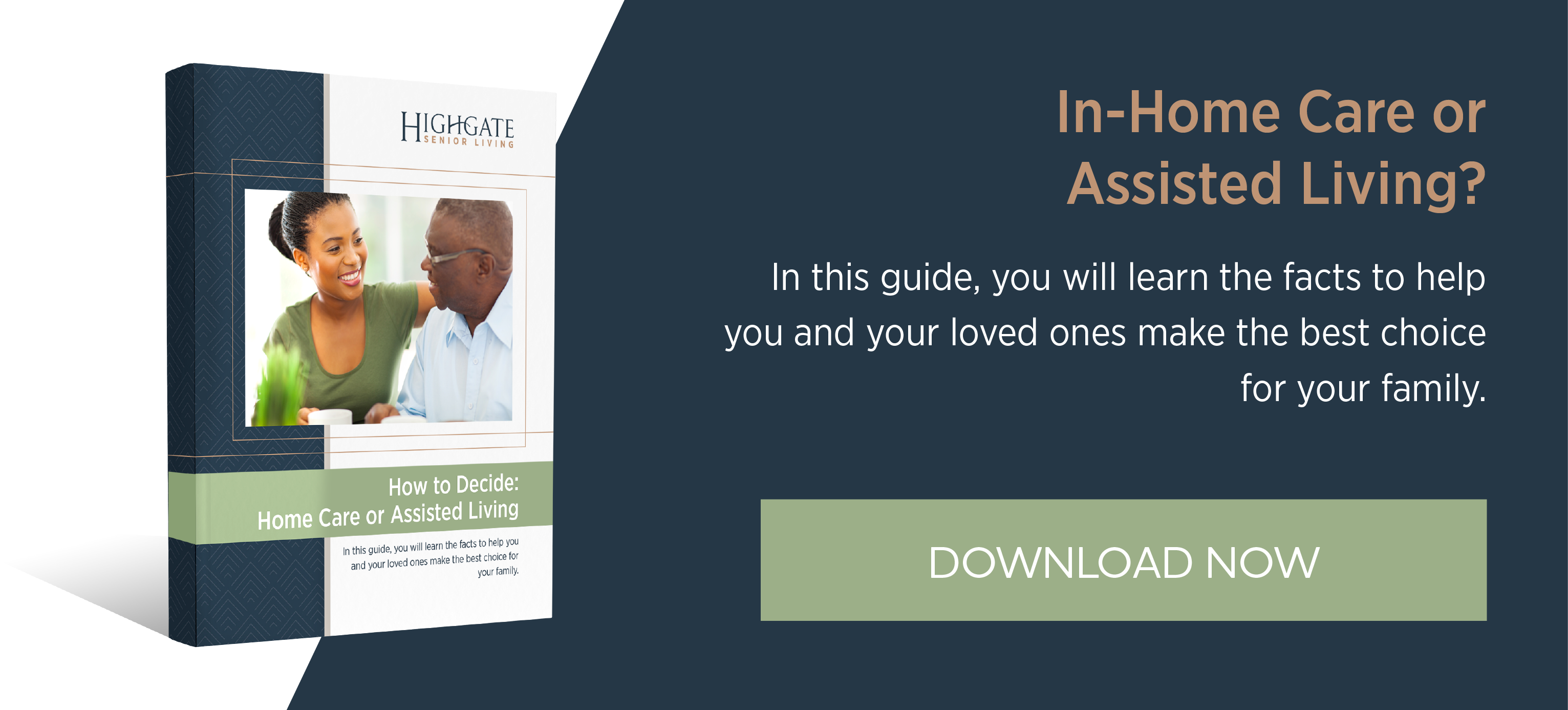
Whether it’s because of sentimental attachment, or simply fear, anxiety and hesitation that come with change, it can be difficult to make the decision to move to assisted living. It might be worth taking a closer look at the pros and cons of making the move.
Choosing home care over a move to assisted living might be the easiest choice, but is it the safest one?
Most people, when they think of creating a safe environment for an aging loved one, think about things like eliminating trip hazards, providing caregivers to be available for showers so a fall doesn’t happen, or setting up a meal delivery service so the stove doesn’t accidentally get left on.
But, creating a safe environment at home means more than just looking at physical hazards.
Home Invasions and Burglaries
Most parents don’t want you to worry. In fact, many avoid sharing their fears for that exact reason. Fear of a home invasion or burglary is among one of those fears they might not be sharing with you.
In all reality, if it’s become more and more difficult for your parent to leave the house during the day, the lack of activity in and out of the home might just make them a prime target. In fact, most home burglaries take place between 10 a.m. and 3 p.m. when adult children are at work.
Locking doors and windows, even when home, installing a home security system, and ensuring the front door has a peep hole can help mitigate the fear of living alone for many seniors. However in a 2005 Gallup poll of 1,000 adults over age 50, less than half surveyed (32 percent) reported getting a good night’s sleep all seven days of the week. The Gallup study revealed a number of factors – including worry – that help explain these sleep problems.
“Many seniors undoubtedly are anxious because they know it's harder to reach help at night,” says Dr. Sonia Ancoli-Israel, professor of psychiatry at the University of California at San Diego and Director of the Sleep Disorders Clinic at the Veterans Affairs San Diego Healthcare System. “There’s also more time to think about all of the things that might be going wrong.”
Solicitations and Scams
For a senior living at home alone, with little ability to leave the house, the phone ringing is often something seniors look forward to. Unfortunately, scammers have caught on to this as well.
Fake telemarketing calls have become one of the most popular ways scammers are now targeting the senior population. Seniors account for twice as many purchases over the phone than the national average.
While the image of the lonely senior citizen with nobody to talk to may have something to do with this, it is far more likely that older people are more familiar with shopping over the phone, and therefore might not be fully aware of the risk. With no face-to-face interaction, and no paper trail, these scams are incredibly hard to trace.
How common is telemarketing fraud? According to an article written by Bloomberg, nearly 5 million older Americans are financially exploited every year, accounting for nearly $37 billion dollars in financial theft.
Putting Your Mind at Ease
So, what are you gaining in an assisted living community that you won’t have at home?
“Our whole job is to make sure the resident feels safe and cared for,” says Megan Wilson, Community Relations Coordinator at Highgate at Billings. “We make sure the doors are locked. We prevent scammers and solicitors.”
In fact, many assisted living communities have formal no solicitation bans in place to keep residents safe.
“They’re completely surrounded by people every day who are looking out for their best interest,” says Brian Kraft, Executive Director at Highgate at Billings.
Assisted living communities may be gated communities, or communities that are locked to the general public after a certain time of night. With 24-hour staffing, your loved one can rest easy knowing there’s someone looking out for them day or night in the community.
For more information deciding between home care and assisted living, download our eBook How to Decide: Home Care versus Assisted Living.






